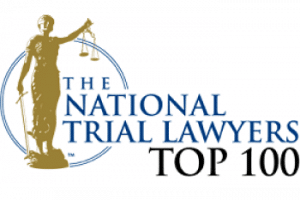The Responsibility of Property Owners/Possessors
 Anyone in control of a commercial, public, or residential property must perform regular inspections of their property to search for hazards that can cause injury.
Anyone in control of a commercial, public, or residential property must perform regular inspections of their property to search for hazards that can cause injury.
How they handle the risks depends on the type of guests on the property.
- An invitee is on the property for commercial purposes, such as customers at a store or maintenance workers coming to your house to fix your air conditioner. To protect invitees, the owner/possessor must regularly inspect the property, promptly mitigate known hazards, and place prominent warning signs near unrepaired hazards.
- A licensee is a social guest on the property for non-business reasons. The duty owed by property owners/possessors to licensees is to inspect the property and repair or verbally warn guests of known hazards.
- A trespasser is on the property without the owner/possessor’s permission or knowledge. This type of guest is not owed a duty of care beyond not being lured onto the property for the intentional purpose of injuring them. The exception to this lack of duty exists with trespassers who are young children prone to curiosity and who do not necessarily understand property lines. Property owners/possessors have a duty toward child trespassers to keep hazards such as swimming pools and old appliances covered or enclosed to prevent injury to the child.
Types of Premises Liability Accidents in Spring Hill
There are several ways a person can become injured while visiting a public, commercial, or residential property in Spring Hill. Here is a look at some of the most common types of premises liability accidents.
Slip and Fall
Slip and fall accidents are the most common type of premises liability complaint and occur when a visitor slips or trips over a property hazard and falls. According to the National Floor Safety Institute, slip-and-falls account for around one million emergency room visits in the U.S. each year. They can result in injuries such as broken bones, traumatic brain injuries, spinal cord injuries, sprains, and strains. This accident is of particular concern to the elderly, who are more prone to falling due to age-related declines in vision and strength.
Common causes of slip and fall accidents include loose or torn flooring materials, wet or freshly waxed floors, obstacles in the walkway, cluttered or damaged staircases, poor lighting, potholes in parking lots, and cracks in concrete pathways.
Swimming Pool Accidents
Florida has the second-highest number of pools in the nation, behind only California, and has led the nation with the newest pools built in recent years. There are more than 1.3 million swimming pools in the state, including public pools, pools owned by private companies or hotels, and residential pools.
Unfortunately, Florida is also the nation’s top state for pool drownings. Property owners must enclose their pools to prevent children from wandering into them. Businesses and public pools must either provide lifeguards or a prominent sign that warns there is no lifeguard on duty.
Beyond drownings, pools present other dangers, such as electrocution due to malfunctioning electrical components, disembowelment or entrapment due to the pool’s filter and drain systems, and even injuries caused by slipping on the concrete near the pool.
Fire
As noted by the Insurance Information Institute, firefighters in the U.S. respond to a reported fire every 23 seconds. Every 89 seconds, a home catches fire. Someone is injured due to a structure fire every 46 minutes, and someone dies due to one every three hours and 24 minutes.
Property owners are responsible for ensuring that the electrical wiring and appliances in their homes, rental homes, or businesses are functioning properly. They must also provide additional protection to guests in case of a fire, such as working smoke and carbon monoxide detectors and accessible and identifiable exits. Hotel and apartment owners or managers must provide fireproof doors and sprinkling systems for the safety of guests and tenants.
Elevator/Escalator Accidents
Accidents involving elevators or escalators happen more often than you think, resulting in about 30 deaths and 17,000 injuries a year. Most often, these accidents involve malfunctioning elevators. Those most likely to become injured or killed due to the malfunction are repair personnel working on the apparatus. Around five people die each year in Florida due to elevator or escalator accidents.
Elevator-related injuries may involve the elevator door closing on the individual or an article of clothing as they enter or exit the apparatus. Individuals may also fall into elevator shafts or become trapped in the elevator or between the elevator shaft and casing.
Escalator accidents most often involve an article of clothing becoming entangled in the mechanical parts of the apparatus or falling from the escalator. About half of the escalator injuries involved young children getting trapped between the stairs and sidewall.
Amusement Park Accidents
In 1990, a training drill on a water slide paralyzed a lifeguard at Buccaneer Bay. Each year, thousands of people are injured at amusement parks around the nation. These injuries can occur due to maintained rides or even slipping improperly and fall accidents resulting from improperly maintained grounds.
Park owners at Weeki Wachee, Adventure Coast Fun Park, Summit Trampoline and Adventure Park, and other places must regularly inspect rides and the premises to search for and promptly repair issues that can result in injuries to guests.
They also must train their employees on the proper procedures for operating the rides, ensuring customers meet height and weight requirements, properly securing riders in the rides, and safely stopping and starting the rides.
Negligent Security
Property owners must protect their guests from harm caused by the condition of the property and take reasonable actions to protect them against criminal activity that is known to occur in the area.
Examples of reasonable actions to provide security to guests on the property include:
- Providing locking doors and windows on hotel rooms and apartment units.
- Providing security alarm systems on apartment units.
- Providing routine security patrols of parking lots.
- Providing metal detection and handbag searches at major sporting events.
- Schools implementing policies and procedures to prevent bullying and fighting on campus.
Dog Bites
Dog bites are commonly included in premises liability issues because the dog’s owner is responsible for leashing the dog in public or keeping it in an enclosed area at home, particularly if they have a history of acting aggressively toward others.
In Florida, dog owners are strictly liable for bites occurring to others. They are responsible for compensating for the injuries incurred, even if they had no reason to believe that their dog would become aggressive.
The dog owner’s homeowners’ or renters’ insurance policy generally covers dog bite claims. However, many insurers will not cover certain dog breeds, leaving the dog owner to bear the brunt of paying for injuries out-of-pocket.
Seeking Compensation After a Premises Liability Accident
Individuals injured due to a property owner’s negligence in protecting visitors can seek compensation through the personal injury claims process. This process involves first filing the claim against the liable property owner’s homeowners, renters, or business liability policy.
When the insurance provider receives the claim, they will assign an adjuster to evaluate the claim’s merits and determine how much compensation you deserve. The adjuster can either pay the full value of the claim, deny the claim and notify the claimant of the reason for the denial, or offer to settle the claim out-of-court for less than its established value.
How to Prove Liability in a Premises Liability Claim?
One of the cornerstones to a successful premises liability claim is proving that the property owner or possessor was negligent in their care for the property and the responsibility to protect their visitors from harm.
You do this by showing:
- The at-fault party controls the Spring Hill property by either owning it, leasing it, or being granted use of it.
- The property had a hazardous condition that the owner either knew about or reasonably should have known about.
- This condition resulted in the accident that caused your injury.
Common Defenses to Premises Liability Claims
Even when an accident occurs that results from a property owner’s negligent upkeep of the property, premises liability claimants can expect the property owner or their insurer to provide excuses as to why they aren’t responsible for compensating the claim.
Some of the common defenses used by property owners to avoid paying claims include:
- The open and obvious doctrine is a legal theory that posits that the claimant was responsible for their injury because the hazard was so open and obvious that anyone paying attention would have noticed and avoided it.
- No constructive knowledge of the hazard. Premises liability claimants must show that a hazard existed and that the property owner either knew or should have known about it. This is often an issue in slip and fall claims involving liquid or debris on the floor that the property owner/possessor could say was placed there so recently that staff did not have an opportunity to discover it during a routine inspection.
- The property owner was not in control of the property. Often, plaintiffs might file claims against the property owner’s insurance when they should have filed claims against the individual or entity leasing the property and assuming its upkeep.
The Compensation You Can Seek in a Spring Hill Premises Liability Case
If an unmitigated property hazard injured you, you can seek compensation for the expenses and impacts of your injury, such as:
- All injury-related medical costs, including emergency treatment, ambulance transport, diagnostic testing, physician and surgical services, hospitalization, physical therapy, and rehabilitation.
- The wages and benefits you lost resulted from being too injured to work.
- The loss of your future earning capacity if the accident results in permanent disabilities that prevent you from earning as you did before the injury.
- Property damage you incurred as a result of the accident, such as the loss of personal belongings in a hotel or apartment fire or damage to your phone or clothing due to a slip and fall accident.
- Physical pain and suffering you experienced due to your injury or the medical treatment.
- Emotional distress caused by the trauma of the accident, the pain of your injury, or the impact your injury has on your finances or daily life.

 Anyone in control of a commercial, public, or residential property must perform regular inspections of their property to search for hazards that can cause injury.
Anyone in control of a commercial, public, or residential property must perform regular inspections of their property to search for hazards that can cause injury.